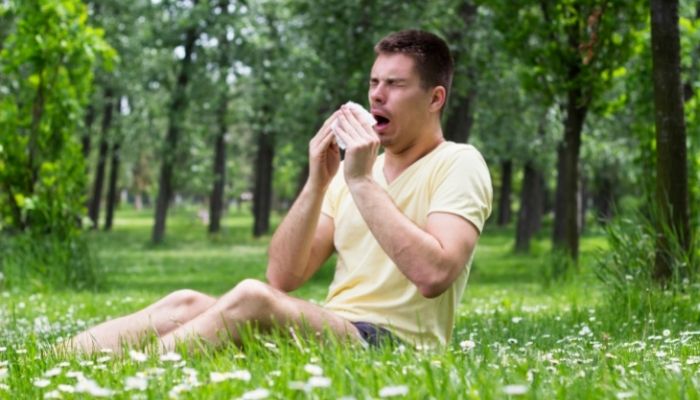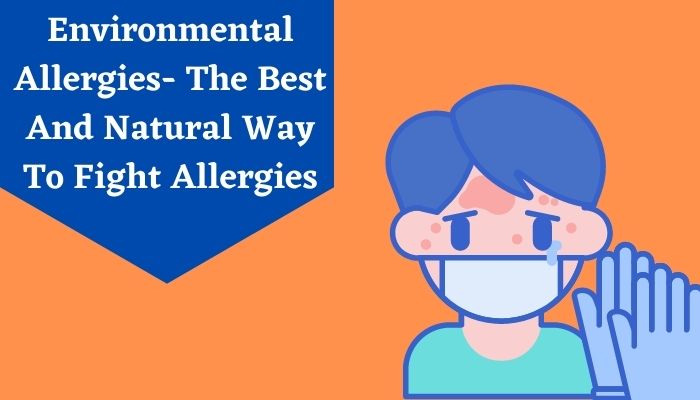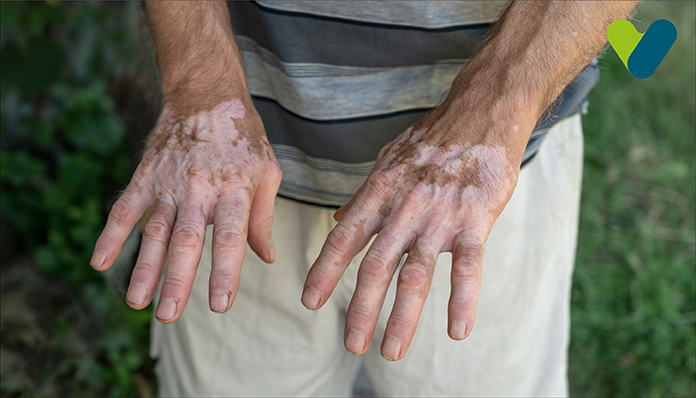Have you heard of something called environmental allergies? There are many kinds of allergies that we often cannot pinpoint although they end up making us miserable at some point! A case in point is a young lady called Shelley in her 30s, who was surprised at her frequent sneezing and tiredness every time she was out on her home terrace amidst the plants and flowers. Matters came to such a head that she stopped going to the terrace altogether once she realized that she was suffering from one of the numerous types of environmental allergies. She was suffering from an allergy due to pollen, something that she could not catch earlier.

These are responses of the immune system to any element in your immediate surroundings which is harmless otherwise. Some environmental allergy symptoms include coughing, fatigue/tiredness, sneezing, and so on. These allergies are not similar to any trigger such as food-related allergies.
Symptoms of Environmental Allergy
Many environmental allergy symptoms vary, depending on the types of environmental allergies. They include the following:- Runny nose syndrome
- Sneezing
- Coughing
- Fatigue or tiredness
- Headaches
- Shortness of breath
- Wheezing
- Itching
Common Types of Environmental Allergies
- Dust Mites- These are amongst the commonest allergies. They are tiny bugs that usually exist in mattresses, furnishings, and so on. If you have this allergy, then your symptoms may be aggravated during the summer and spring since these mites usually like humid and warm climes.
- Pollen Allergies- Pollen is another major allergen and if someone is allergic to the same, then symptoms may worsen in the spring and some other periods. Some of the symptoms include itchiness in the throat, watery eyes, sneezing, and more.
- Pet Dander- Pet saliva and dander are also allergens. Symptoms may include frequent itching, sneezing, hives, and coughing. These symptoms may be seen around an animal although it is hard to identify. If someone else has dander on his or her apparel, then it might affect you as well.
- Mold- Mold may lead to severe or mild reactions in people who have these allergies. Symptoms may include sneezing, breathing issues, coughing and itchiness of the skin. Mold flourishes in damper environments and symptoms may worsen during months which have similar weather. Mold commonly spreads in bathrooms and basement areas.
- Cigarette Smoke Allergy- Cigarette smoke often worsens or irritates symptoms for several people.
Diagnosis & Treatment for Environmental Allergies
There are several aspects worth noting in this regard:- Doctors will inquire about specific symptoms, family history and other medical conditions that you may have.
- Some environmental allergy testing may also be needed. Common testing types include the blood test, skin prick test and also the elimination diet if the doctor thinks you have a food-related allergy.
- Medication may be recommended for relieving allergy symptoms. OTC medicines like antihistamine may sometimes be prescribed in this regard.
- Some of these medicines may lead to drowsiness at times. Read all labels with care and consult your doctor.
- These medicines are often suitable for seasonal allergies since they do not have to be consumed for longer periods of time.
- Doctors may also recommend allergy shots or immunotherapy for combating severe allergies at specific times of the year.
Natural & Convenient Remedies for Environmental Allergies
- Using an air filter will greatly enhance overall indoor air quality while trapping all allergens before they enter the space.
- Purifiers with HEPA filters also work to reduce pollutants indoors.
- Those with dust mite and other allergies may find relief in using an air purifier.
- You should try and use mattress covers and pillow covers which are allergy-proof if possible. Clean them regularly, vacuuming and washing them with care. Wash all bedding in hot water for doing away with allergens.
- Keep the windows closed at times for lowering environmental allergens in the home.
- Instead, open bathroom windows regularly for combating both moisture and mold.
- Try and keep the pets out of the bedroom if you find you are having allergies on account of dander. Regularly bathing your pet will also help combat risks of allergens.
- Consume probiotics- Consumption of probiotics may also help with combating allergies. Those taking probiotics may report relief for symptoms of seasonal allergies as per several reports.
- Saline sprays may also help in the management of dust mite allergy symptoms.
- Essential oils may also help in improving allergy symptoms. Tea tree, lavender, and eucalyptus oils have anti-inflammatory characteristics while offering enhanced relief from itchiness and congestion.
- Good hygiene habits may also help greatly with relieving symptoms.


